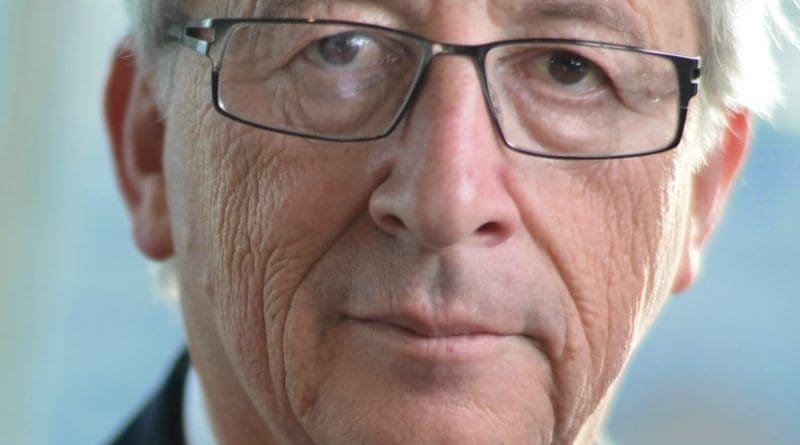Solidarity Tops Juncker’s Agenda For Europe’s Future
By EurActiv
By Daniela Vincenti
(EurActiv) — European Commission President Jean-Claude Juncker moved solidarity up the ladder of EU priorities in a straightforward speech delivered in Florence on Friday during the State of the Union Conference.
Cutting short his speech, which he delivered in French as “English is losing importance”, Juncker regretted what little appreciation Europeans have for the impressive achievements of the European project.
Mentioning the European founding fathers he saluted the impressive return of their vision: peace. “They were able to transform their struggle into a political project which was able to benefit us all,” he said, referring to the centuries of wars that had divided the continent.
Project after project, he enumerated the EU successes from enlargement to the single market and currency but also highlighted the many weaknesses, prompted by an uneven construction.
“In the past, the EU has done a little too much, even the Commission: too many rules, too much interference in the daily lives of our citizens,” Juncker admitted, adding that his Commission has slashed the number of legislative proposals from 130 a year to 23 and is concentrating on the environment and programmes to boost trade, growth and jobs.
But the EU is much more than a single market, he said.
Moving forward will not be easy at a time where the EU is disparaged, destroyed and cut into pieces, the president warned, citing the UK’s decision to leave the European Union.
Insignificance or relevance
“We are the smallest continent and we are losing clout,” he said. In the future, the EU’s global share of GDP will drop from 25 to 15%, which, combined with a growing ageing population, means the only way to solve common challenges is boosting unity not division.
Without mincing his words he said the time has come for further unification.
The EU executive presented in March five different scenarios for the future of Europe.
At the time, sources said that the Commission’s preferred option was a scenario in which some member states could integrate further and others would and could join at a later date.
That multi-speed Europe has not gathered much consensus since then as some fear it will reignite an East-West divide.
While the idea of building the EU’s future around a “hard core” and a group of less integrated peripheral states has seduced France, Germany and Italy, the EU’s newest members eye this development with suspicion.
“We need to speed things up,” he said, defending further integration on defence and building further solidarity by placing social rights at the heart of the European construction.
“The great absentee in Europe is solidarity,” he highlighted. Mentioning Italy and Greece, which cannot be left alone to deal with migration, he hinted at the need for a more united front in dealing with the many crises hitting the EU.
“Europe does great things, it’s not time to fall into despair. We need determination which is the only way to bring forward our ambition,” he concluded.

